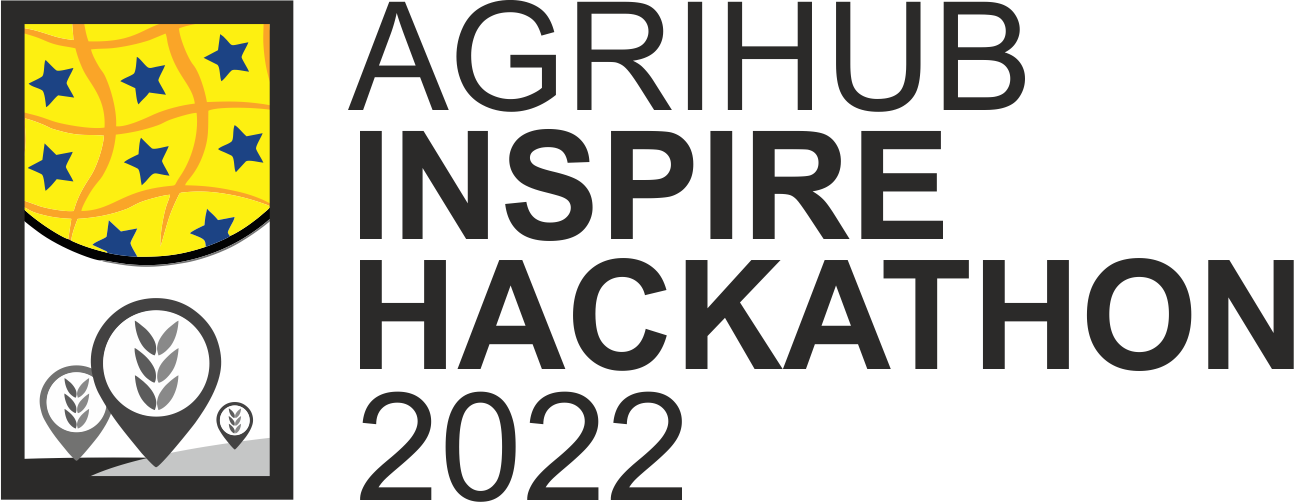The AgriHub INSPIRE Hackathon is the 20th INSPIRE Hackathon organized by Plan4All, this year within the AgriHub CZ&SK project funded by the SmartAgriHubs H2020 project. It is based on the traditional INSPIRE Hackathon model, which means that it is not a single event, but a process aimed at effectively using the results of previous hackathons focused on the development of new innovations. In this hackathon, we will therefore not only build on the Agrihub INSPIRE Hackathon 2021, which defined a total of 8 challenges aimed at supporting digital innovation centres in the Czech Republic and Slovakia, but we will also focus, for example, on the further development of Open Land Use for Africa or an application enabling the creation of application maps.
For participants, the main benefit of the INSPIRE hackathon is the opportunity to join and become a member of the international knowledge community. Participants of the INSPIRE Hackathon will receive a diploma documenting and confirming their active participation. The top three teams, selected by a jury based on a set of predefined criteria, are offered the opportunity to contribute to peer-reviewed articles and citable publications documenting the outputs and results of the events. It is hoped that this lasting legacy will project their career growth paths.
During the months of April and May, when the hackathon will take place, we offer a unique opportunity to experience our new technologies and infrastructure, which will be open to all developers. At the same time, the technologies will be available to apply and integrate into individual challenges at your own discretion and experience. The INSPIRE Hackathon opens up opportunities to collaborate in the development of different solutions with participants from all over the world, while offering everyone the chance to enrich their own experience.
PARTICIPATION & REGISTRATION
For each INSPIRE hackathon, several challenges are defined in advance. Participants of the hackathon seek solutions to these challenges under the guidance of one or more mentors. The role of the mentors is to coordinate the teamwork within the challenge, ensure communication within the team and ensure that the team’s results are presented at the final virtual event that concludes the hackathon. All results will then be published and integrated on www.agrihub.cz and www.agrihub.sk.
A total of 16 published challenges can be participated in succession. You can choose one, several or all of them. It’s up to you!
The registration for challenges is open! Register for the hackathon HERE.
This hackathon has two virtual phases. In the first phase of the INSPIRE Hackathon, we are hacking and brainstorming innovative ideas under the guidance of an experienced mentor. Communication within each team will be provided by virtual meetings, webinars and other means of communication such as Google Drive or Whatsapp. The mentor of each challenge will be responsible for communicating with the team members who join the challenge.
The second virtual phase, which is a virtual workshop, concludes the hackathon. In this workshop you will meet the members of the international jury and the top 5 hackathon results. The date is still to be determined. All teams participating in the hackathon will be invited to make a 10-minute video presenting the results of the challenge. These videos will not only be viewed by the jury, but will also be published online and will facilitate the general public to select the 3 winning solutions.
TIMELINE
- Opening of registration – 28 March 2022
- Virtual Hackathon – 1 April 2022 – 20 May 2022
- Preparation of video presentations of results and final reports – by 20 May 2022
- Final workshop and results announcement – TBD
LIST OF CHALLENGES
- Further development and testing of the application for creating application maps – this is the development of SmartAgriculture applications in agriculture and their massive testing directly by farmers
- Analytical tools for WhiteBoard – MapWhiteBoard is a completely new solution for map work, a kind of Google document for maps that allows collaborative work
- Food transport monitoring – this is about promoting local food and implementing quality monitoring during transport
- Climate analysis in the field – analysis of local sensor data in vegetation, it’s about understanding local climatic influences
- Analysis and visualization of sensor measurements – integration of AI technology and new interactive data visualization methods
- IoT and EO data integration – improving agricultural production prediction. This is a development of a solution that was selected last year in the WSIS competition as one of 90 global innovative solutions
- OLU4Africa – leveraging existing data for Africa and creating a single Land Use and Land Cover map for the whole Africa
- How to use and improve OLU 2.0 – OLU 2.0 is a new data model that not only incorporates Land Cover and Land Use, but allows for easy integration of local and regional data to create unique databases for landscape and regional process modelling. It can be used for modelling environmental processes, in agriculture but also for economic models
- A new social space for geographic information sharing and education – this is a new kind of portal primarily for geographic data that allows easy participation of citizens, students and others and supports easy content creation. In doing so, it builds on the principles of INSPIRE and GEO.
- Integrating QFild with the Innovation Hub – developing field data collection tools based on existing Open Source Software
- Automating the calculation of management zones based on yield potential – this is a method that will make it easier to prepare basemaps for farmers based on analysis of historical imagery
- Building a social space for Africa – similar to Experiment 9 with a focus on Africa
- Agro Environmental Services – Uptake of Copernicus and INSPIRE to support agri – food and environmental opportunities
- Irrigation management – Irrigation management will provide recommendation for integration of existing climatic, IoT and Copernicus data.
- Drones utilization for crop protection – Utilisation of drones for crop monitoring and application of pesticides/herbicides
- Analysis, processing and standardisation of data from agriculture machinery for easier utilization by farmers – Machinery monitoring challenge will provide the analysis, processing and standardization of data from the agricultural machinery and thus its easier utilization by farmers.
The Agrihub INSPIRE Hackathon is supported by following organisations and projects:
 Plan4all (https://www.plan4all.eu/) – Plan4all is a non-profit association sustaining and further enhancing the results of multiple research and innovation projects. It aggregates large open datasets related to planning activities in different specialisms areas transport, spatial and city planning, environment and tourism. Plan4all makes sure that open data are easily accessible for reuse, data are maintained and their quality is improved.
Plan4all (https://www.plan4all.eu/) – Plan4all is a non-profit association sustaining and further enhancing the results of multiple research and innovation projects. It aggregates large open datasets related to planning activities in different specialisms areas transport, spatial and city planning, environment and tourism. Plan4all makes sure that open data are easily accessible for reuse, data are maintained and their quality is improved.
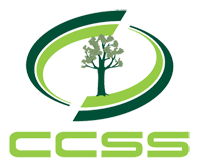 CCSS (http://www.ccss.cz/en/) is a research association established by legal entities, which support research cooperation among Universities, public and private sectors. Activities of CCSS are oriented in a wide range of thematic areas implemented in International and European research projects related to environment, agriculture, planning, GI, ICT development, real estate and planning. Activities also extend to the field of information technology, spatial planning, advisory, education, sustainable development and the development of applications in the field of planning, smart cities, forestry, agriculture, agro-tourism, and farming.
CCSS (http://www.ccss.cz/en/) is a research association established by legal entities, which support research cooperation among Universities, public and private sectors. Activities of CCSS are oriented in a wide range of thematic areas implemented in International and European research projects related to environment, agriculture, planning, GI, ICT development, real estate and planning. Activities also extend to the field of information technology, spatial planning, advisory, education, sustainable development and the development of applications in the field of planning, smart cities, forestry, agriculture, agro-tourism, and farming.
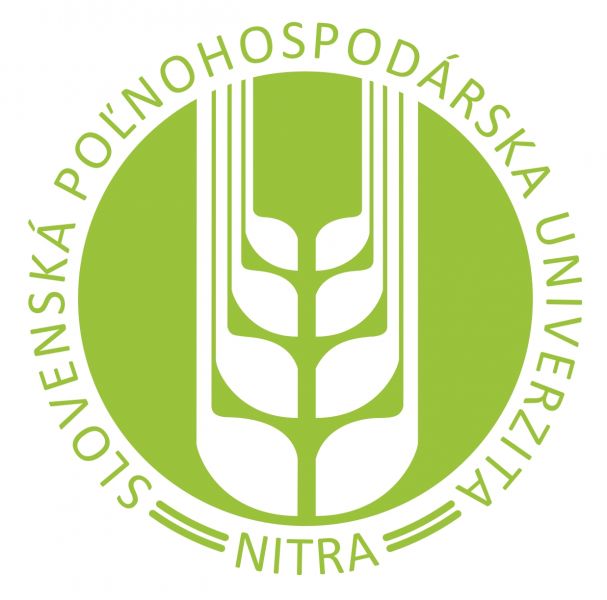 Slovak University of Agriculture in Nitra, as the only educational and scientific institution of this kind in Slovakia, provides university education in accordance with the Bologna strategy on the basis of scientific knowledge in the area of agriculture and related sciences. As the only agricultural university in Slovakia. SUA has an exclusive position within the Slovak universities and nation-wide field of activities. Its mission is to provide and ensure education, research and guidance so that the knowledge necessary for the development of agriculture and related industries and rural development in Slovakia is created, transferred into and interconnected with the international community. Together with the academic places of work SUA is part of the public universities network in the Slovak Republic.
Slovak University of Agriculture in Nitra, as the only educational and scientific institution of this kind in Slovakia, provides university education in accordance with the Bologna strategy on the basis of scientific knowledge in the area of agriculture and related sciences. As the only agricultural university in Slovakia. SUA has an exclusive position within the Slovak universities and nation-wide field of activities. Its mission is to provide and ensure education, research and guidance so that the knowledge necessary for the development of agriculture and related industries and rural development in Slovakia is created, transferred into and interconnected with the international community. Together with the academic places of work SUA is part of the public universities network in the Slovak Republic.
 ADDSEN is an SME established in Bratislava region, Slovakia. Its main focus is on innovation management, business development consulting and RTD activities related to usability of innovation. The core team has been performing innovation management from 2006 and was actively involved in Framework Programme Seven (FP7), Competitiveness Innovation Programme (CIP) and Horizon 2020 in numerous collaborative projects. The project team of ADDSEN includes specialists in domains of social sciences, requirements analysis, end user engagement, communication and innovation management.
ADDSEN is an SME established in Bratislava region, Slovakia. Its main focus is on innovation management, business development consulting and RTD activities related to usability of innovation. The core team has been performing innovation management from 2006 and was actively involved in Framework Programme Seven (FP7), Competitiveness Innovation Programme (CIP) and Horizon 2020 in numerous collaborative projects. The project team of ADDSEN includes specialists in domains of social sciences, requirements analysis, end user engagement, communication and innovation management.
 Agricultural Association of the Czech Republic is a legal entity that is a voluntary, independent, non-governmental and non-political association of legal and natural persons – agricultural business companies, agricultural cooperatives, sales cooperatives and companies, farmers and other entrepreneurs whose business is primarily focused on agriculture, farming, breeding and services – which have been associated to protect their economic and social interests in accordance with the laws of the Czech Republic.
Agricultural Association of the Czech Republic is a legal entity that is a voluntary, independent, non-governmental and non-political association of legal and natural persons – agricultural business companies, agricultural cooperatives, sales cooperatives and companies, farmers and other entrepreneurs whose business is primarily focused on agriculture, farming, breeding and services – which have been associated to protect their economic and social interests in accordance with the laws of the Czech Republic.
 CzechInno (CzechInno, Association of Legal Entities) is a Czech non-governmental non-profit organisation founded in 2011 to support innovative entrepreneurship in the Czech business and public sphere. In its role of an innovation matchmaker connecting in its projects academia, enterprises and public sphere, it specializes in topics related to Industry 4.0 and efficient and fair implementation of digital innovations in business practice and daily life. In 2017, CzechInno became the founder of the Central European platform for digital innovations CEEInno, within which now more than 120 stakeholders in the field of digital innovations from all over the Europe and world are grouped and cooperate on exact individual projects to raise the level of digital maturity of business and society.
CzechInno (CzechInno, Association of Legal Entities) is a Czech non-governmental non-profit organisation founded in 2011 to support innovative entrepreneurship in the Czech business and public sphere. In its role of an innovation matchmaker connecting in its projects academia, enterprises and public sphere, it specializes in topics related to Industry 4.0 and efficient and fair implementation of digital innovations in business practice and daily life. In 2017, CzechInno became the founder of the Central European platform for digital innovations CEEInno, within which now more than 120 stakeholders in the field of digital innovations from all over the Europe and world are grouped and cooperate on exact individual projects to raise the level of digital maturity of business and society.
 AGCO is a global leader in the design, manufacture and distribution of agricultural equipment. Through well-known brands including Challenger®, Fendt®, Massey Ferguson® and Valtra®, AGCO Corporation delivers agricultural solutions to farmers worldwide through a full line of tractors, combine harvesters, hay and forage equipment, seeding and tillage implements, grain storage and protein production systems, as well as replacement parts.
AGCO is a global leader in the design, manufacture and distribution of agricultural equipment. Through well-known brands including Challenger®, Fendt®, Massey Ferguson® and Valtra®, AGCO Corporation delivers agricultural solutions to farmers worldwide through a full line of tractors, combine harvesters, hay and forage equipment, seeding and tillage implements, grain storage and protein production systems, as well as replacement parts.
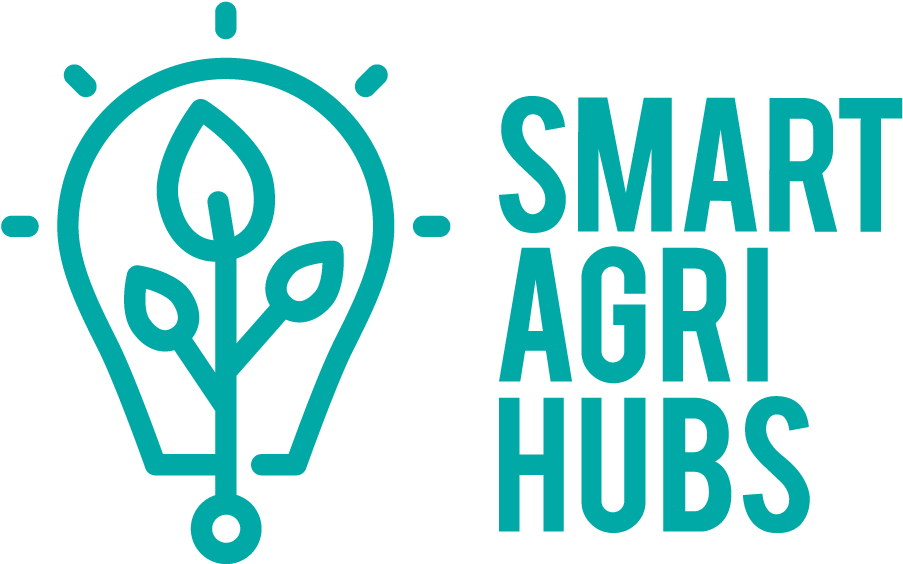 SmartAgriHubs(https://smartagrihubs.eu/) The project aims to realise the digitisation of European agriculture by fostering an agricultural innovation ecosystem dedicated to excellence, sustainability and success. To this end, SmartAgriHubs employs a multi-stakeholder approach and covers a broad value-chain network across all EU member states. The consortium includes a diverse network of start-ups, SMEs, business and service providers, technology experts and end-users. The end-users form the core of the project and are the driving force behind digital transformation. The development and adoption of digital solutions is achieved by a tight ecosystem of 140 Digital Innovation Hubs embedded within 9 Regional Clusters, which are led by organisations that are closely involved in regional digitisation initiatives and funds.
SmartAgriHubs(https://smartagrihubs.eu/) The project aims to realise the digitisation of European agriculture by fostering an agricultural innovation ecosystem dedicated to excellence, sustainability and success. To this end, SmartAgriHubs employs a multi-stakeholder approach and covers a broad value-chain network across all EU member states. The consortium includes a diverse network of start-ups, SMEs, business and service providers, technology experts and end-users. The end-users form the core of the project and are the driving force behind digital transformation. The development and adoption of digital solutions is achieved by a tight ecosystem of 140 Digital Innovation Hubs embedded within 9 Regional Clusters, which are led by organisations that are closely involved in regional digitisation initiatives and funds.
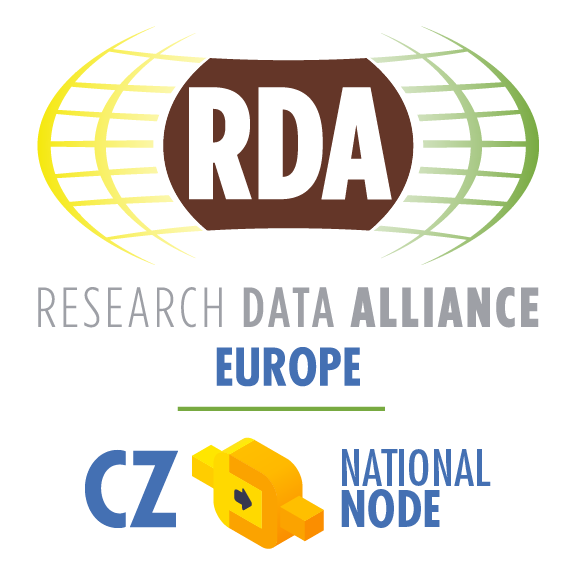 RDA-CZ Node (https://www.rd-alliance.org/groups/rda-czech-republic) – National Node Services and Activities in support of the “RDA Europe 4.0” Project. The objective of RDA Europe 4.0 is to become the centrepiece for an EU Open Science Strategy through a consolidated European network of National Nodes, bringing forward an RDA legacy in Europe, providing skilled, voluntary resources from the EU investment to address DSM issues, also through an open cascading grant process. The ambitious 27-month project comprises 5 Partners and a number of Third Parties (the National Nodes) all of which are domain skilled, complementary institutions and organisations that have been drivers of RDA in Europe since its launch in 2013.
RDA-CZ Node (https://www.rd-alliance.org/groups/rda-czech-republic) – National Node Services and Activities in support of the “RDA Europe 4.0” Project. The objective of RDA Europe 4.0 is to become the centrepiece for an EU Open Science Strategy through a consolidated European network of National Nodes, bringing forward an RDA legacy in Europe, providing skilled, voluntary resources from the EU investment to address DSM issues, also through an open cascading grant process. The ambitious 27-month project comprises 5 Partners and a number of Third Parties (the National Nodes) all of which are domain skilled, complementary institutions and organisations that have been drivers of RDA in Europe since its launch in 2013.
 LIVERUR (https://liverur.eu/) The LIVERUR project identifies Living Labs as innovative business models that are currently being developed in rural areas, and will conduct socio-economic analyzes to identify, describe and compare the differences between the new approach of Living Lab and more entrepreneurial traditional approaches (mass production, development of prices, optimizing cost structures with companies, rationalization).
LIVERUR (https://liverur.eu/) The LIVERUR project identifies Living Labs as innovative business models that are currently being developed in rural areas, and will conduct socio-economic analyzes to identify, describe and compare the differences between the new approach of Living Lab and more entrepreneurial traditional approaches (mass production, development of prices, optimizing cost structures with companies, rationalization).
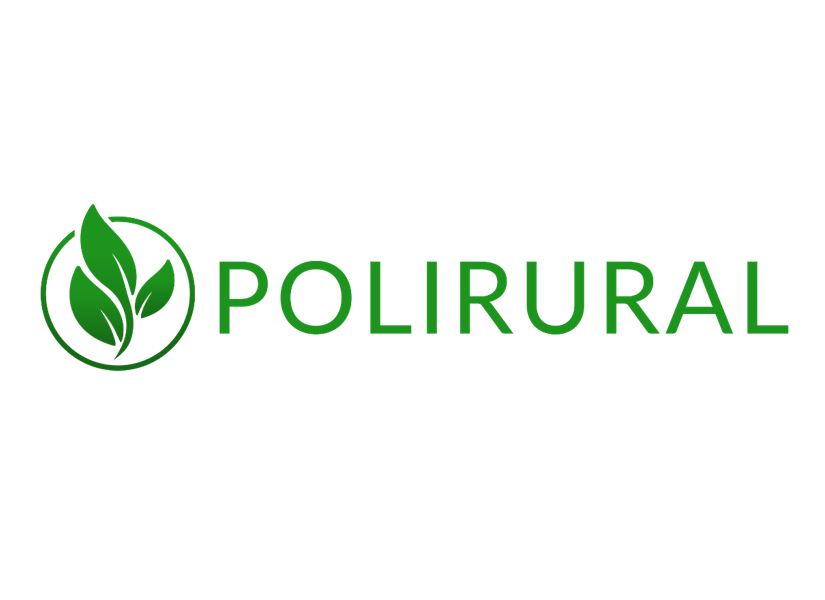 PoliRural (https://polirural.eu/) – PoliRural will provide this knowledge by combining several key activities needed to design effective place-based, human-centric and forward-looking rural policies. These include actionable research that takes place within an inclusive learning environment where rural populations, researchers and policymakers come together to address common problems; an evaluation exercise that uses text mining to assess the perceived effectiveness of past or planned policy interventions; and a foresight study that tries to glean the development trajectory of agriculture and its allied sectors until 2040 using several scenarios in which the evolution of rural populations occupies a central place.
PoliRural (https://polirural.eu/) – PoliRural will provide this knowledge by combining several key activities needed to design effective place-based, human-centric and forward-looking rural policies. These include actionable research that takes place within an inclusive learning environment where rural populations, researchers and policymakers come together to address common problems; an evaluation exercise that uses text mining to assess the perceived effectiveness of past or planned policy interventions; and a foresight study that tries to glean the development trajectory of agriculture and its allied sectors until 2040 using several scenarios in which the evolution of rural populations occupies a central place.
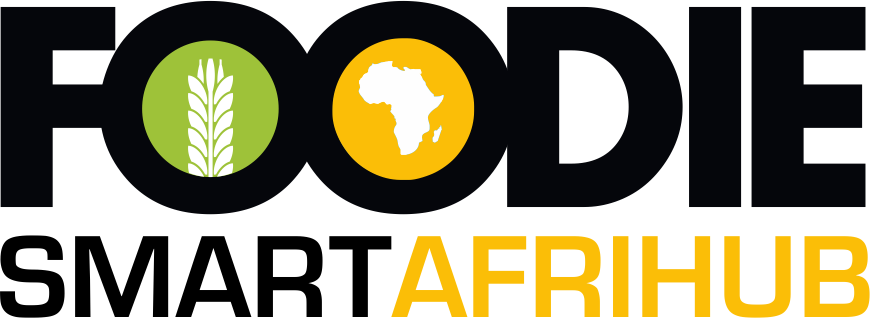 SmartAfriHub (https://www.smartafrihub.com/pt/home) The purpose is to design, develop and introduce a Smart Agriculture Innovative Hub – SMARTAFRIHUB. The platform will be used to connect people to the information. Firstly with integrating principles of social media like Blog, Forum, design Science Shop, which will be able to connect users with developers and researchers. And secondly by integrating different types of demo applications, where farmers, developers and researchers will have chance to cooperate, test different API for new solutions and also provide common experiments.
SmartAfriHub (https://www.smartafrihub.com/pt/home) The purpose is to design, develop and introduce a Smart Agriculture Innovative Hub – SMARTAFRIHUB. The platform will be used to connect people to the information. Firstly with integrating principles of social media like Blog, Forum, design Science Shop, which will be able to connect users with developers and researchers. And secondly by integrating different types of demo applications, where farmers, developers and researchers will have chance to cooperate, test different API for new solutions and also provide common experiments.
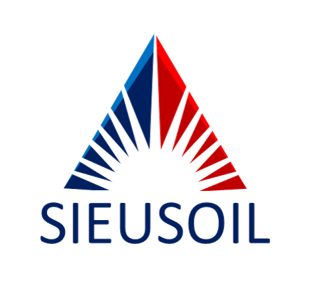 SIEUSOIL https://www.sieusoil.eu/ aims to develop sustainable and holistic soil management practices based on a harmonised land information system suitable for diverse climate and operation conditions along different EU and China locations.
SIEUSOIL https://www.sieusoil.eu/ aims to develop sustainable and holistic soil management practices based on a harmonised land information system suitable for diverse climate and operation conditions along different EU and China locations.
AFarCloud http://www.afarcloud.eu/ – Farming is facing many economic challenges in terms of productivity and cost-effectiveness, as well as an increasing labour shortage partly due to depopulation of rural areas. Reliable detection, accurate identification and proper quantification of pathogens affecting both plant and animal health, must be kept under control to reduce unnecessary costs, trade disruptions and even human health risks.

